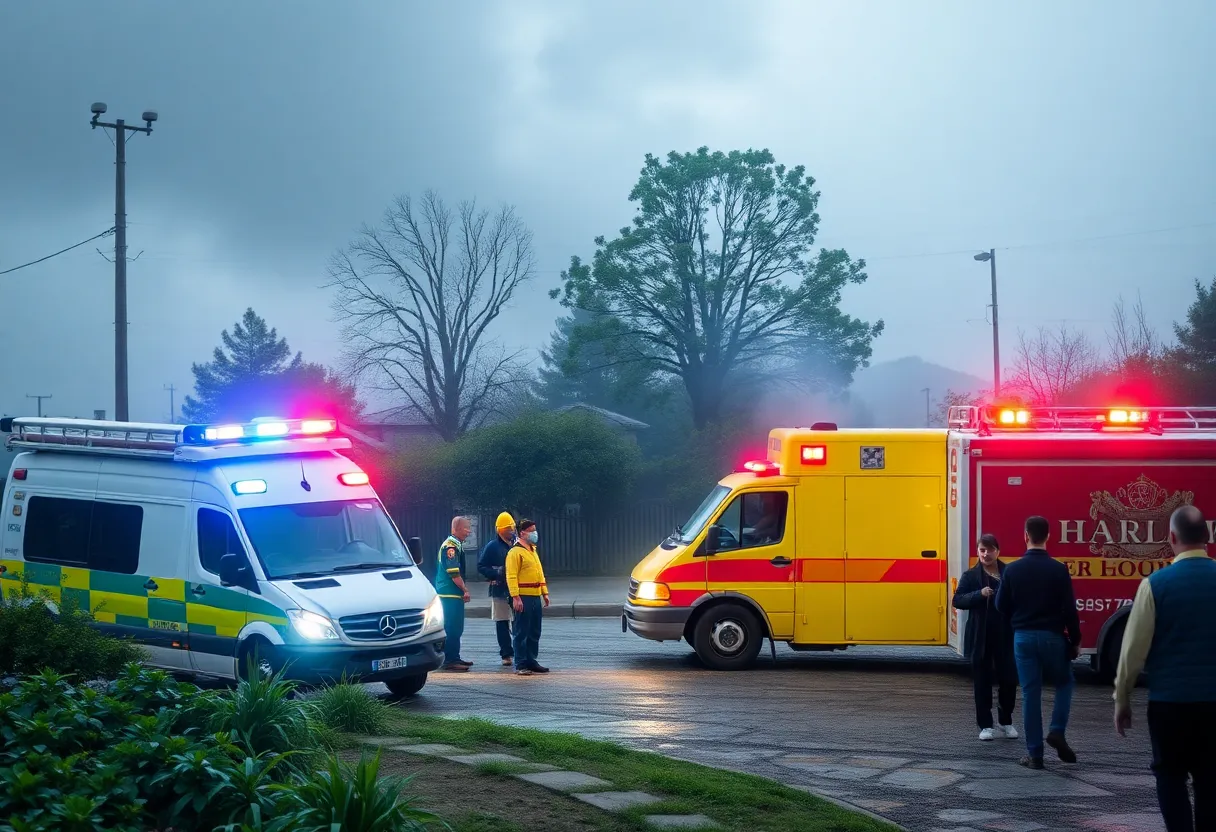

Illustration of community and emergency responders collaborating during a disaster.
The Trump administration is contemplating a significant reduction in FEMA’s role in disaster recovery, backed by Homeland Security officials. A public notice has been issued to gather community input on the agency’s effectiveness. Critics express concern that such changes could disadvantage rural areas and compromise emergency responses. In response, lawmakers have introduced a bill aimed at establishing an independent FEMA. As the Atlantic hurricane season approaches, worries mount over FEMA’s capacity to handle crises effectively amid financial and workforce challenges.
The Trump administration is making waves by considering a major shake-up of the Federal Emergency Management Agency, commonly known as FEMA. This bold plan, supported by Secretary of Homeland Security Kristi L. Noem and other officials, aims to significantly diminish FEMA’s role in disaster recovery. If all goes according to plan, FEMA could see its key functions, like rebuilding efforts and funding resilience projects, totally eliminated by October 1.
This week, the administration has been gathering feedback through a public notice published by an advisory council established by the President. Community members are encouraged to share their experiences with FEMA during disasters. This input is expected to play a crucial role as the council evaluates the adequacy of FEMA’s services and looks into possible reforms in the near future.
A spokesperson from the Department of Homeland Security shared that Noem is committed to hunting down any waste, fraud, or abuse within the department. In a recent meeting with state emergency managers, FEMA’s acting administrator, Cameron Hamilton, emphasized the urgency for states to become more resilient and to collaborate with private partners when dealing with emergencies. This shift is intended to ensure that communities are better prepared and able to withstand disasters.
However, critics are raising alarm bells about this potential overhaul, especially since it could devastate rural areas and red states, leaving them vulnerable and jeopardizing their recovery efforts. Representative Jared Moskowitz from Florida has voiced strong opposition to the proposal, advocating instead for reforming FEMA rather than scrapping it altogether. Moskowitz highlights the agency’s essential role in providing disaster response funding for local and state governments, underscoring its importance during tough times.
In response to the ongoing concerns, Moskowitz, along with Representative Byron Donalds, introduced a bill aimed at establishing an independent FEMA that would report directly to the President. The goal here is to slice through bureaucracy and ensure a quicker response to emergencies. This would presumably allow them to tackle pressing issues more effectively than the current setup.
FEMA has regularly faced criticisms regarding its ability to deliver timely aid during disasters. The frustrations of affected communities have been palpable, especially considering that President Trump has previously expressed a desire to dismantle the agency in favor of more state-led disaster responses. With only two months left before the Atlantic hurricane season kicks off, many are worried about the implications of these changes on emergency preparedness.
While some federal lawmakers agree that disaster recovery programs could benefit from reform to alleviate their cumbersome nature, others believe the existing National Response Framework is functioning well. They stress the vital importance of federal support in times of crisis. However, ongoing job cuts and a hiring freeze have led to concerns about FEMA’s capacity to respond effectively, with reports indicating that the agency’s workforce is currently 35% below what is needed.
News from March 2023 suggested that many positions within FEMA would require approval from Noem’s team for renewal, leaving the workforce with growing uncertainties. Additionally, over $100 billion in previously awarded grants and disaster assistance currently remains frozen while the Trump administration navigates guidance linked to ongoing executive orders. This financial limbo has turned into a roadblock, complicating essential preparations for the impending hurricane season.
Furthermore, recent instances of financial misconduct within FEMA led to the termination of several employees, leaving some wondering how effective the agency can be moving forward. The stakes are high, as time ticks down to the start of hurricane season, and many communities are left holding their breath as they await clarity on FEMA’s future.
As this situation develops, it remains to be seen what the ultimate fate of FEMA will be, but one thing is for sure: the conversation surrounding disaster recovery and agency reforms is more important than ever.
News Summary NorthMark Strategies is investing $2.8 billion to develop a high-performance computing center in…
News Summary Starting April 30 through May 3, multiple road closures will take place in…
News Summary Michelin North America, Inc. celebrated its 50th anniversary in South Carolina, marking a…
News Summary Recent changes by the federal government regarding international students have created significant uncertainty…
News Summary Mohsen Mahdawi, a Palestinian student and activist, has been released from immigration detention…
News Summary A shocking hazing incident involving eleven players from the Westhill High School lacrosse…